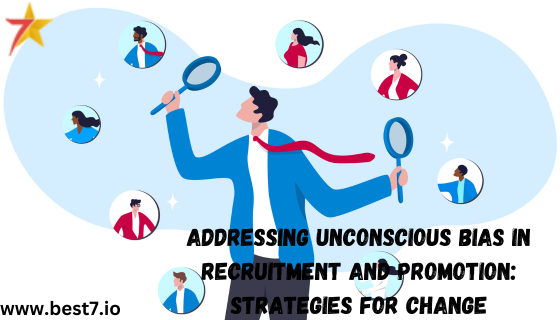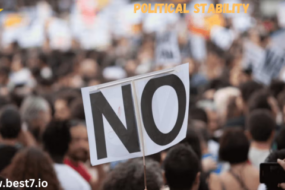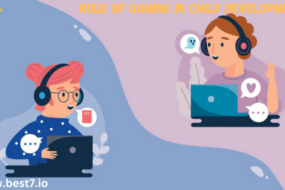
Unconscious bias has long affected recruitment and promotion processes. In many cases, such bias has had negative effects on the diversity of organizations and has limited their inclusivity. Many companies now have a better understanding of unconscious bias in hiring and advancement and have adopted human resource strategies that support fair processes in these areas. This essay argues that in the pursuit of balanced workplaces, organizations should commit to strategic recruitment and development.
Implementing Diversity Initiatives to Combat Bias
Many organizations have implemented diversity initiatives, bias training, and equitable opportunities to reduce bias in hiring and advancement. This paper draws on the analysis of case studies of successful bias reduction in hiring and promotion to give insight into the mitigation of bias. The practice is likely to intensify and deepen in the future, making workplaces more balanced.
Refining Job Descriptions to Prevent Bias
Unconscious bias associated with employment and selection procedures often arises from job descriptions and selection criteria. Phrasing such as ‘fast-paced’ and ‘competitive’ has historically deterred candidates from underrepresented groups. Moreover, selection criteria favoring Ivy League graduates or extensive experience over potential can unintentionally introduce bias. LinkedIn’s 2020 analysis found that applications dropped by up to 30% due to biased job descriptions. By 2025, more organizations will likely use AI-driven tools to review job descriptions for biased language, thereby expanding their recruitment process.
Skills-Based Selection Criteria
Emphasizing skills over specific educational backgrounds has allowed companies to broaden their pool of eligible candidates, tapping into talent from across the country.
Implementing AI in Screening to Minimize Bias
Using AI technology to review job descriptions and remove gender bias can positively influence the decisions of qualified candidates considering applying.
Expanding Recruitment Channels for Inclusivity
Recruiting from a range of organizations or institutions affiliated with diverse groups is a key way companies ensure inclusivity, enhancing their access to underrepresented talent.
Structured and Transparent Role Expectations
Clearly defined job requirements and qualifications without ambiguous terms help candidates feel confident in their suitability for the role.
Tracking Language Impact on Diversity Goals
Many companies now use tools to analyze how job description language affects diversity metrics, leading to continuous improvements in creating inclusive job postings.
Establishing Bias Training Programs
To address bias in interviews, organizations have implemented standardized bias training sessions that help interviewers recognize and counteract their biases, promoting fairer hiring practices.
Structured Interview Techniques
Structured interviews, where all candidates are asked the same questions, ensure fairer and more consistent evaluations.
Diverse Interview Panels
Using varied interview panels helps balance out individual biases, as different panelists offer unique perspectives and insights.
Focusing on Behavior-Based Interview Questions
Behavior-based questions give interviewers an objective basis for assessing candidates, reducing the risk of superficial judgments.
Overcoming “Culture Fit” Bias
Training interviewers to prioritize work-based skills over “culture fit” criteria enables a more equitable hiring process.
Implementing Performance Evaluation Strategies to Reduce Bias
Bias extends beyond hiring and affects performance appraisals, impacting promotion opportunities for individuals. Structured performance review criteria have been implemented to ensure more equitable advancement for underrepresented groups, with projections indicating increased standardization by 2030.
Implementing Performance Evaluation Strategies to Reduce Bias
Using objective performance metrics helps reduce subjectivity in performance assessments, leading to fairer outcomes.
Regular Bias Check-Ins During Evaluations
Implementing bias check-ins during evaluations promotes fairness by cross-referencing ratings for possible biases.
Data-Driven Promotion Analysis
Using data to track promotion trends helps HR teams identify and address disparities in advancement opportunities.
Encouraging Leadership Representation
Applying representation metrics for promotions ensures alignment with DEI goals, promoting diverse leadership.
Collecting Employee Feedback for Evaluation Improvements
Anonymous feedback mechanisms allow employees to report biases, fostering continuous improvement in evaluation practices.
Strategic Recruitment and Data Analysis for Continuous Improvement
Strategic recruitment and data analysis provide insights into DEI-related areas for improvement. For instance, Intel’s annual DEI analysis and reporting model offers a blueprint for DEI accountability, and predictive analytics in recruitment are expected to become more prevalent by 2035.
Annual DEI Reporting for Accountability
Public DEI progress reports hold companies accountable, enabling stakeholders to track DEI engagement and improvements.
Predictive Analytics in Recruitment
Predictive analytics offer real-time insights, helping HR teams adjust recruitment strategies to meet diversity targets.
Setting Diversity Metrics in Strategic Planning
Regularly reviewing DEI metrics in strategic planning ensures sustained progress toward diversity and inclusion goals.
Analyzing Workforce Demographics
Analyzing workforce demographics allows HR teams to assess talent pipeline quality and support balanced hiring approaches.
Continuous Improvement Frameworks in Recruitment and Development
Models for continuous improvement ensure that recruitment and advancement strategies remain aligned with evolving DEI goals.
Retention Metrics and DEI
Retention metrics provide insights into the effectiveness of DEI initiatives and employee satisfaction, informing retention strategies.
Integrating AI in DEI Efforts
AI integration supports better demographic analyses, giving HR teams data-driven insights to foster equitable hiring and promotion practices.












